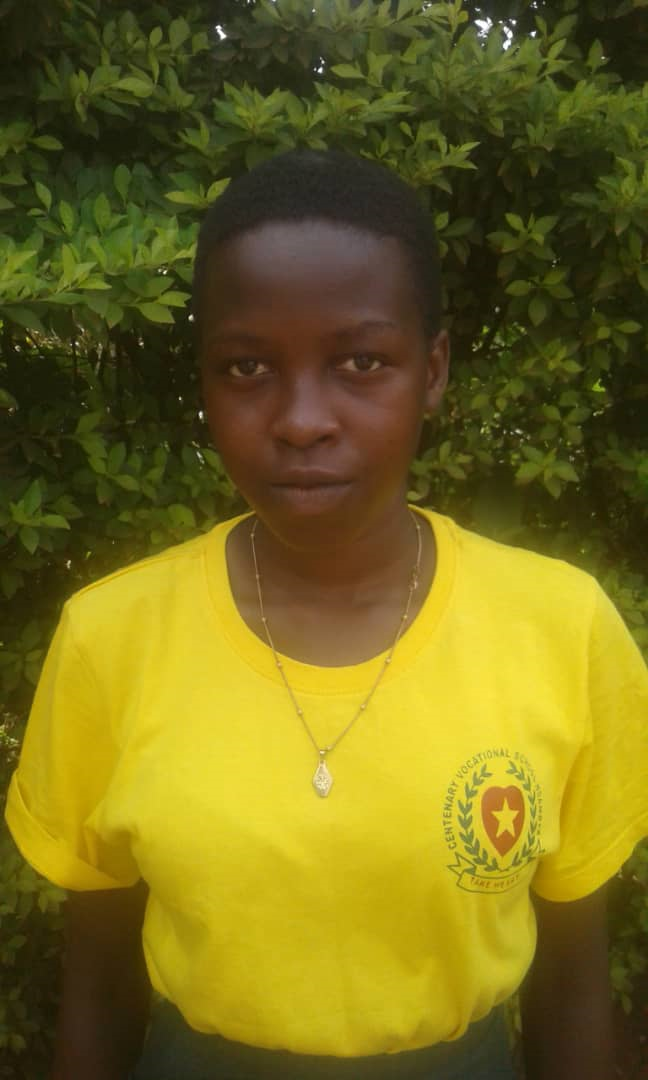Supporting Vulnerable Ugandan Children in Communities during Corona Virus
Many families in Uganda have lost some or all of their income during the lockdown due to the corona virus. There are no Foodbanks in Uganda, if you don't work, you don't eat!
This is Tabitha and her grandmother, Nalongo. Nalongo is a fish monger who cannot go to the landing site for fish to sell during lockdown. She is now relying on support from well-wishers because her daughter who usually supports her with some income is also under quarantine.
Tabitha and her family's situation is not uncommon in Uganda during this current time, and there are a further 27 family groups in similar situations who we have been helping during the pandemic, all of which has been made possible by your support. On behalf of Tabitha, her family, and other families in Uganda, thank you!
Here are some reports from the beneficiaries
Betty, Isma and Emma (Emmanuel)
Betty, Isma and Emma have all been resettled with their mother.
In March 2020, they all broke from school following the Presidential directives for the closure of schools, churches and all other public gatherings as one of the preventive measures for the spread of Corona Virus. During their stay at home, they receive their class study notes for various subjects from social media platforms, TV stations, and WhatsApp.
During a phone call conversation, their mother was so grateful for the funds she received. She is happy that she was able to buy enough food to take her family through this entire quarantine season. With this fund support, the family was able to buy food items like rice, maize flour, beans and matooke.
Betty, Isma and Emmanuel
Sarah
Sarah stays with her grandmother. Sarah is studying a vocational course in Tailoring which she started in February this year. Studying a tailoring course will help her to acquire skills in fashion and design in addition to making clothes patterns. With such skills, she can be in a position to start and run her own business. She is excited at studying this course because it prepares her to become self supportive.
During the lock down, her grandmother has identified a good tailor in their village who is currently providing tailoring lessons to Sarah. She has mastered some tailoring skills and can now ably make simple dresses, shirts and trousers.
At home Sarah participates in doing house chores like washing clothes, cooking and cleaning. In their home garden she has planted maize, beans, cassava and matooke.
During a phone call interaction with Sarah’s grandmother, she said that the lock down came at a time when she was not doing well financially. She was so happy to receive news that her family had received food support funds. With these support funds, she was able to buy food items like Maize flour, beans, salt and sugar. She is so thankful and grateful to God for his provision. She is happy that her family can enjoy nutritious meals during the lock down season.
Tabitha
Tabitha stays with her grand mother. She attends school a few kilometres from their home. During the lock down she receives her class work from her teachers who visit her at home every two weeks.
Her grandmother is a fish vendor and runs her business from the market.
When she received news about Covid–19, she and everyone else that ran businesses in the market went into great fear. The fear developed because they interact with so many customers on a daily basis, and in addition, they handle lots of paper money. This was putting their lives at a greater risk of acquiring Covid-19.
She was worried about how she would manage taking care of her family of nine members in such a hard season. She is grateful to God that she received food support funds. She was able to buy food including maize flour, beans and sugar. She is happy that she has enough food to feed her family of nine.
Hassan and Hussein
Hassan and Hussein’s mother struggles to look after her family of five children.
She washes clothes for Somali nationals and vends cooked food in one of the food kiosks as a source of income to take care of them. During this quarantine season, food kiosks were closed so she could not earn a living.
People were advised to stay at home to stay safe from Covid–19, and this meant that she could not move to her clients residences to wash clothes either.
As a single mother, life was not easy for her as she struggled to provide daily meals for her children. She had lost hope but she is thankful to God that someone somewhere thought about her and she received food support funds. With the food support funds she was able to buy maize flour, beans, salt and sugar. She is happy that she has enough food for her children to enjoy good meals on a daily basis.
Noeline
Noeline is one of the children we support as part of the Community Education Support Programme, and lives with her mother, Justine. She attends school in Primary Seven class, but is currently off school due to the virus.
During her stay at home, Noeline takes time to read her books and answers questions for previous years’ Primary Leaving Exams published in newspapers, in readiness for sitting her exams at the end of the year. She receives coaching from a teacher in the neighbourhood to help her to master various topics.
Justine is so happy for the food support funds they received as a family. As a parent, she was worried how her family would survive during this lock down season. At the beginning of the lock down, prices for most food items increased due to the high demand as people started panic buying, and she did not have enough funds to stock food in her house.
She is so grateful to God that when her hope had gone, she received food support funds and she was able to buy food items like maize flour, beans and sugar. She is glad that her family has enough food to enjoy nutritious meals during this entire season.
Noeline has ample time to interact with her mother and this has helped her to learn more home management skills. During lock down they have managed to grow crops like tomatoes, beans and maize in their home garden. They look forward to getting a good harvest,and will sell any surplus produce to earn a living.
Once again, many thanks to all who have donated to help support families like those above, we really appreciate your support.
If you would like to know more about this project or would like to donate, you can do so by clicking here.




